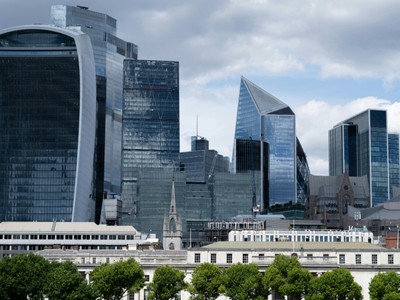It was based around Vix, the index that measures market volatility, and highlighted the increasing part played by algorhythms in share trading. We are experiencing something of a roller coaster ride in stock markets right now that would have fitted nicely into his narrative. Just over a week ago our benchmark FTSE 100 Share Index closed below 5000. Recently it flirted with 5700, but sellers came in driving the index lower and back into negative territory. Trading volumes are high, but the volatility now present in the market is making investment a tricky game.
The sole driving force for markets at present is the global pandemic. With the regulator discouraging companies from issuing trading statements and results until the way in which this crisis is affecting their business becomes clearer, we are unlikely to get much of a steer from the corporate sector. As for economic guidance, it is too early to determine the extent of the damage wrought by Covid 19, or to know how long the crisis will go on.
That there will be significant consequences cannot be in doubt, but it does not follow that all the changes likely to come about once this pandemic ceases to be an issue will be bad. The speed at which society has adapted to the current situation is encouraging – as is the way in which communities are coming together to help the most vulnerable, while the drop in air pollution is also a positive factor. We will undoubtedly find some good emerging from the disruption that has been caused.
But until things settle down investors will need to exercise patience and caution. It seems inevitable that the state will need to play a more prominent role in business and society in general throughout western democracies once things settle down. It may even happen in the United States, where the speed at which this pandemic has spread and the reaction from the White House could well have implications for the outcome of the Presidential election later this year. Indeed, our political leaders are likely to be judged by how they reacted to this crisis.
Perhaps the most worrying aspect of recent developments for investors is the speed at which companies are choosing to stop the payment of dividends. Such a measure is, of course, no more than prudent as businesses seek to conserve cash to carry them through an uncertain period ahead. The trouble is that this has implications across a number of fronts, such as pension income, insurance products and retirement income from savings. There may well be a dividend bounce once this is all behind us, but in the meantime 2020 will turn out to be an interesting year for all of us in a number of different ways. But I don’t expect computers to take over the running of trading strategies just yet.


